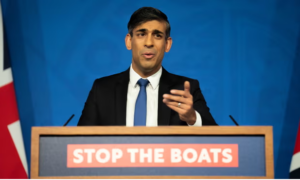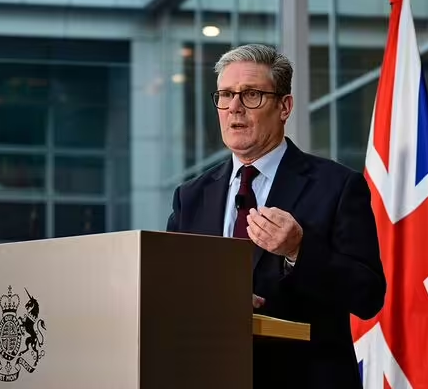Home Office figures show number of asylum seekers waiting for initial decision up in June despite clampdown

The UK’s asylum backlog has crept upwards in 2024, statistics show, despite pledges by the last government to drive numbers down.
Home Office figures show 118,882 people were waiting for an initial decision on asylum applications in the UK at the end of June, up slightly from the 118,329 waiting at the end of March.
The number of asylum decisions dramatically fell in the weeks before the July general election, the data indicates. In the second quarter of this year, the Home Office made decisions on 15,965 applications, down from 24,348 in the first three months. Only 1,150 asylum interviews took place in June, down from more than 8,000 last October, according to the data.
The UK’s asylum backlog has been at the heart of the political row over immigration because it leaves the taxpayer with a housing bill of £8m a day and means the lives of applicants are left in limbo.
In December 2022, the then prime minister, Rishi Sunak, said he planned to “abolish the backlog of initial asylum decisions” as part of a five-point plan to reduce illegal immigration.
Marley Morris, from the Institute for Public Policy Research (IPPR), said the new data showed how difficult Keir Starmer’s task was if he hoped to improve the asylum system. “Despite the previous home secretary making progress on clearing the backlog of asylum claims last year, the backlog has barely changed in recent months as ministers were distracted by the Rwanda plan.
“The government has done the right thing in cancelling the Rwanda deal and unblocking asylum processing, but further reform will be necessary to bring down the backlog and close down eye-wateringly expensive asylum hotels.”
Peter Walsh, a senior researcher at the University of Oxford’s Migration Observatory, said the change may be due to the Tory government’s reluctance to process claimants under the Illegal Migration Act who could not be granted leave to remain except under limited circumstances. “Until earlier this year, the government was still working through applications that weren’t affected by the Illegal Migration Act, which meant it was able to progressively reduce the backlog.
“However, it seems that the new legislation started to bite in the spring, when the Home Office ran out of older cases to process. In theory, the previous government did have some discretion to continue to process claims – as Labour says it is now doing – but it appears to have decided not to use it.”
There were 1,891 asylum applications in the so-called “legacy” backlog – dating back to before June 2022 – that were still awaiting an initial decision at the end of June, figures show. The non-legacy backlog of asylum cases awaiting an initial decision – covering applications made on or after 28 June 2022 – stood at 83,948 at the end of June.
The data also shows Starmer has inherited a fall in net migration afterchanges introduced by Sunak’s government. There was a 156,000 (27%) reduction in the total number of work and study visas issued, from 583,000 in January to June 2023 to 427,000 in the same period of 2024.
The number of visas granted to health workers has been cut by 26% since June 2023, the statistics show. Grants for “health and care worker” main applicants fell to 6,564 between April and June 2024. In the same period in 2023 there were 35,470 grants.
In March the then government announced social care workers would no longer be able to bring dependents on their visas.

In the first six months of this year, visas granted to dependants of overseas students fell by 81% to 11,675 compared with the same period in 2023. It follows plans announced in May 2023 by the Conservative government to block international sponsored students from bringing dependants with them to the UK.
Seema Malhotra, the minister for migration and citizenship, said “the asylum backlog has soared” under the Tories “costing the taxpayer billions”.
“We can’t solve these problems overnight, but we have already started work to deliver an immigration and asylum system that is controlled, managed, and works,” she said.
James Cleverly, the shadow home secretary who is running to be the leader of the Conservative party, said the latest figures showed that the measures put in place by the last government are taking effect.
“The extra resource I put into the system meant more decisions, cutting the backlog, lower grant rate, and more returns,” he said.


